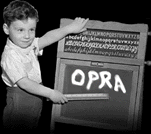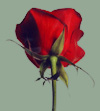

 Walt Whitman was not born into a knowledge or appreciation of opera.
In fact, he was utterly untrained in all forms of music. In his quest
to champion all that was good and "American," Whitman at first rebelled
against such aristocratic forms of entertainment as opera. He believed
America should develop it's own kind of music and should not by any means
subscribe to such un-American and meaningless drivel. he first came
to enjoy simple music, what today we would term "folk" music. He
liked the melodic simplicity of traveling troupes of family singers, believing
that it had heart and was thus the true "American music." A family
by the name of Hutchinson was particularly influential during Whitman's
musically formative years, and Whitman praised them for their elegant simplicity
of music.
Walt Whitman was not born into a knowledge or appreciation of opera.
In fact, he was utterly untrained in all forms of music. In his quest
to champion all that was good and "American," Whitman at first rebelled
against such aristocratic forms of entertainment as opera. He believed
America should develop it's own kind of music and should not by any means
subscribe to such un-American and meaningless drivel. he first came
to enjoy simple music, what today we would term "folk" music. He
liked the melodic simplicity of traveling troupes of family singers, believing
that it had heart and was thus the true "American music." A family
by the name of Hutchinson was particularly influential during Whitman's
musically formative years, and Whitman praised them for their elegant simplicity
of music.
Whitman's
original conviction was that Italian opera was too artificial and complicated.
In his editorial reviews, he scorned the performers and their art, ridiculing
them as un-American. However, while he was also crying out against
opera, he was at the same time extolling the virtues of vocal openness
in speech or song, even going so far as to call for a modification of English
in singing. Whitman eventually commented, "America is to adopt the
Italian method, and expand it to vaster, simpler, far superber effects.
It is not to be satisfied till it comprehends the people and is comprehended
by them" (Faner, 40). Whitman could not deny the beauty and artistic
technique of the Italian artists of his day, and thus grew into a greater
appreciation, if not yet enthusiasm, of their work.
Despite all attempts to pin down the enigmatic cloud that is Walt Whitman, he continually evades concrete definition. In his own true Whitmanian style, he eludes categorization again, as there is no systematic account of his conversion to a love of Italian opera. Perhaps his conversion was as the sun rising, little by little hardly noticeable until the heat blazes upon you. Perhaps Whitman himself did not realize that he was coming to like the art form until he had a white-hot passion for it. One of his final reveiws states, "You listen to this music, and the songs, and choruses--all of the highest range of composition known to the world of melody. A new world,--a liquid world--rushes like a torrent through you. If you have the true musical feeling in you, from this night you date a new era in your deelopment, and, for the first time, receive your ideas of what the divine art of music really is" (Faner, 43). The height of Whitman's opera attendance is in the two decades prior to the Civil War, though he did manage to take an occasional jaunt to the theatre at certain times after the war as well.
